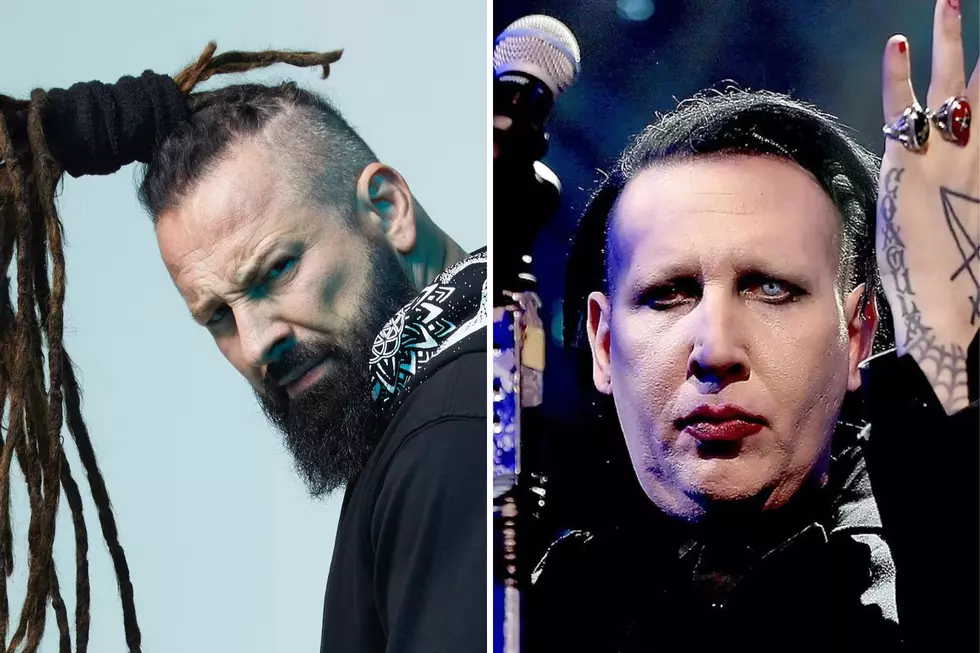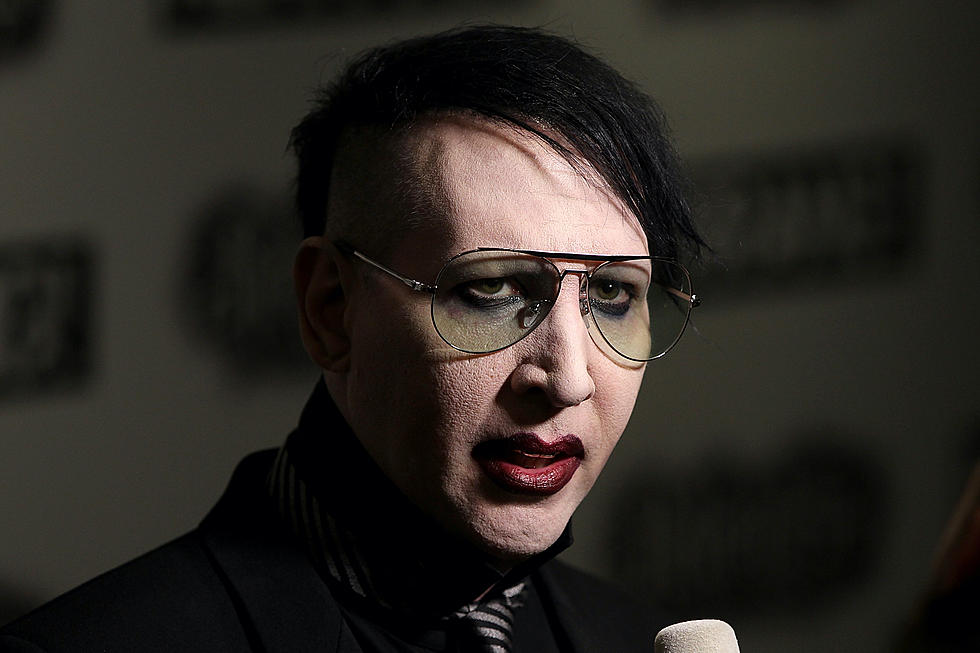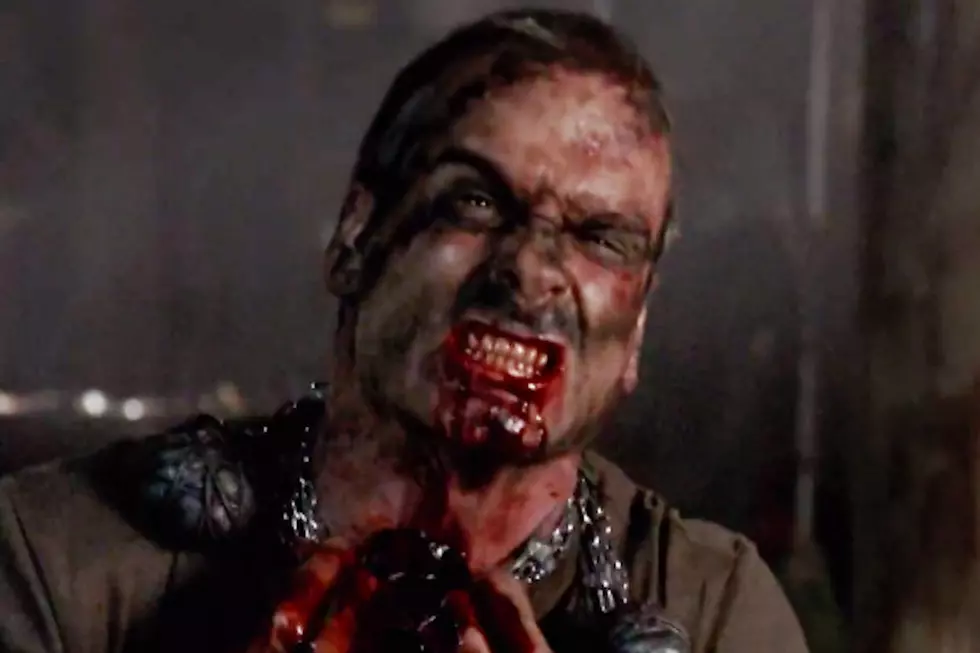
24 Years Ago: Marilyn Manson Makes Creative Leap With ‘Antichrist Superstar’
Marilyn Manson turned heads with the 1994 breakout release Portrait of an American Family, continued the momentum with the 1995 EP Smells Like Children, but truly catapulted toward stardom with 1996's Antichrist Superstar, the first portion of an album trilogy that saw Manson truly grow into an artist.
Manson continued his friendship with musical mentor Trent Reznor, heading to Reznor's Nothing Studios in New Orleans to work on the album. Reznor served as producer on the effort, while a number of his associates — producer Sean Beavan, guitarists Robin Finck and Danny Lohner and drummer Chris Vrenna — all lent assistance both musically and behind the board.
In an interview with Rolling Stone, Manson revealed that the idea for Antichrist Superstar began with one of his vivid dreams.
He explained, "I started having dreams and visions of the world being destroyed and me being the only one left. It was like an ultimate retribution for all of the things that have happened to me growing up. One dream took place some time in the future — it may have even been in Fort Lauderdale. Entertainment had gone to such an extreme that they had taken people and made them into zombies almost just for entertainment's sake. And I had this strange vision of these women who were completely brain dead -- there were just dancing in cages, and their jaws were wired shut so that they wouldn't bite off the dicks of all these guys that were around them masturbating. It was a complete Sodom and Gomorrah. And then somehow I was there and I was like either presenting the whole event or performing in it or something. That was probably the first appearance of what will be Antichrist Superstar rearing its ugly head."
Manson took the title of Andrew Lloyd Webber's musical Jesus Christ Superstar and gave it his own unique play on words. Digging into some of the ideas from his dreams, he plotted out the album as a scathing social critique about a supernatural being who seizes power and leads the world toward destruction. He would tell Kerrang that part of the inspiration came from German philosopher Friederich Nietzsche.
In addition to the outside influences, Manson also found himself struggling with his own identity in the world and that plays into the album as well. The vocalist stated at the time, "Sometimes I wonder if I'm a character being written or if I'm writing myself. It's confusing."
One of the songs on the disc, "Little Horn," delves into the aforementioned dream and what exactly is reality.
He explained, "If you thought about it long enough, you could pose the question: Did Antichrist Superstar create Marilyn Manson as a vehicle for it's rise to power? I really feel like where I'm at now is where there's no line between what's on the album and what's in reality. They work together and one just feeds off the other. The album talks about us being the biggest rock band in the world, and that is going to happen."
Marilyn Manson, "Little Horn"
While Reznor may have produced the album, Manson's closest confidant may have been guitarist Twiggy Ramirez. "The only person I can relate to is Twiggy," revealed the rocker. "I've always felt ignored and starved in relationships. But it's especially true now. It would be hard to relate to someone who hasn't been in front of thousands of people screaming their name, or who hasn't been up for three days and doing drugs and shit, or who hasn't had to go to sleep at night on their back because their entire chest was bleeding from broken glass."
Ramirez adds that he feels their pairing was meant to be, stating, "The day I met him, I knew that we would work together. As the band gained popularity locally, I thought it was my place to either be in the band or destroy it."
As it turned out, Ramirez was prophetic, serving as Manson's musical partner through the course of the trilogy before exiting after the support of 2000's Holy Wood album. The trilogy, which also included 1998's Mechanical Animals disc, actually played out in reverse chronological order, with Antichrist Superstar viewed as the conclusion, while the other two discs served as prequels of sorts.
As for Antichrist Superstar, the album arrived on Oct. 8, 1996, through Reznor's Interscope brand Nothing Records. The first song fans heard was the title track, a promotional single for the album, In the overall concept of the album, the song centered on the point where the abused victim took on the identity of the Antichrist Superstar, preparing to destroy everything in his path. Manson would often perform the track from a podium onstage. The song didn't really register at radio, but did become a solid part of Manson's live show.
Marilyn Manson, "Antichrist Superstar"
The first true single off the album was "The Beautiful People." Manson penned the track about what he described as "the culture of beauty." The chugging, aggressive beat has made it one of Manson's most recognizable tracks. He told Kerrang, "It was somewhere in the South [when I came up with it], which is ironic. I remember playing the drum beat on the floor and then having my drummer duplicate that on the drum machine. It happened in one day pretty much."
Manson had one of the more popular and striking videos of his career with "The Beautiful People," a clip directed by Floria Sigismondi. The video would be nominated for a pair of MTV Video Music Awards, including a nomination for Best Rock Video.
In one of the most memorable performances of the song, Manson took the stage in 1997 VMAs flanked by faux Secret Service Agents as he stepped up to a podium and stated, "My fellow Americans, we will no longer be oppressed by the fascism of Christianity! And we will no longer be oppressed by the fascism of beauty. As I see you all sittin' out there trying your hardest not to be ugly, trying your hardest not to fit in, trying your hardest to earn your way into Heaven, but let me ask you: Do you want to be in a place that's filled with a bunch of assholes?"
Marilyn Manson, "The Beautiful People" Live at MTV VMAs (1997)
The other major single from the album was "Tourniquet," a track derived from another of Manson's dreams. The darkly sultry but at times aggressive song did crack the Mainstream Rock chart nearly a year after the album was released. Other standout cuts on the disc included the distortion-filled "Cryptorchid," the groove and beat-driven "The Reflecting God" and the frenetic album opener "Irresponsible Hate Anthem."
The disc would debut at No. 3 on the Billboard 200 Album Chart and went on to be certified platinum. But of more importance, Antichrist Superstar saw the emergence of a true artist in the making.
Manson told Rolling Stone shortly after the album was released, "Every once in a while, I'll step out on the balcony and think about jumping. I'll think, 'Is this the final thrill, because I'm numb to everything else?' But I feel I have more to accomplish. I think I have a lot more in store that people really won't expect. I mean, besides the end of the world."
Turns out, he was correct as Manson is still thriving in modern day.
Marilyn Manson Albums Ranked
More From Loudwire









